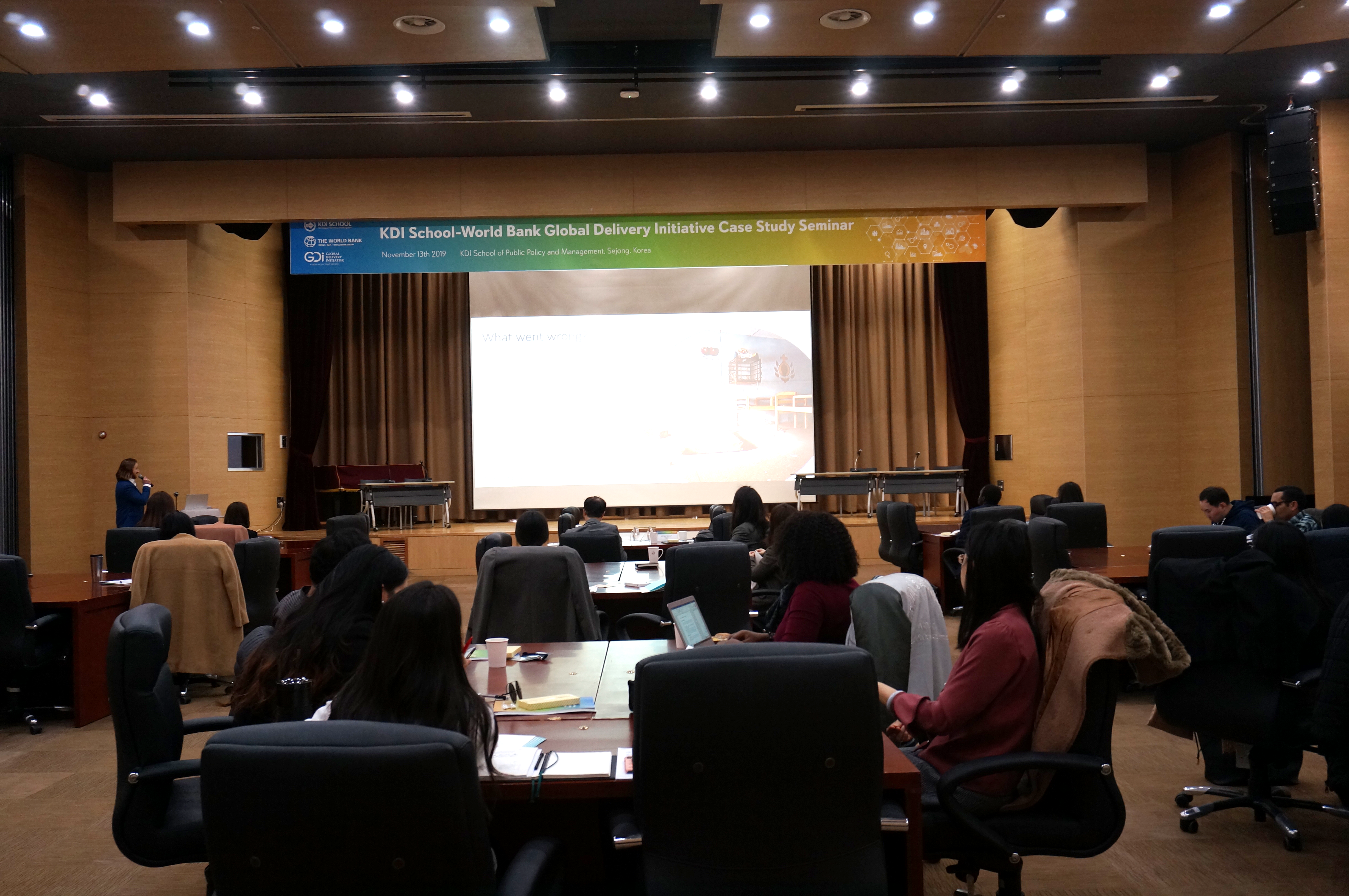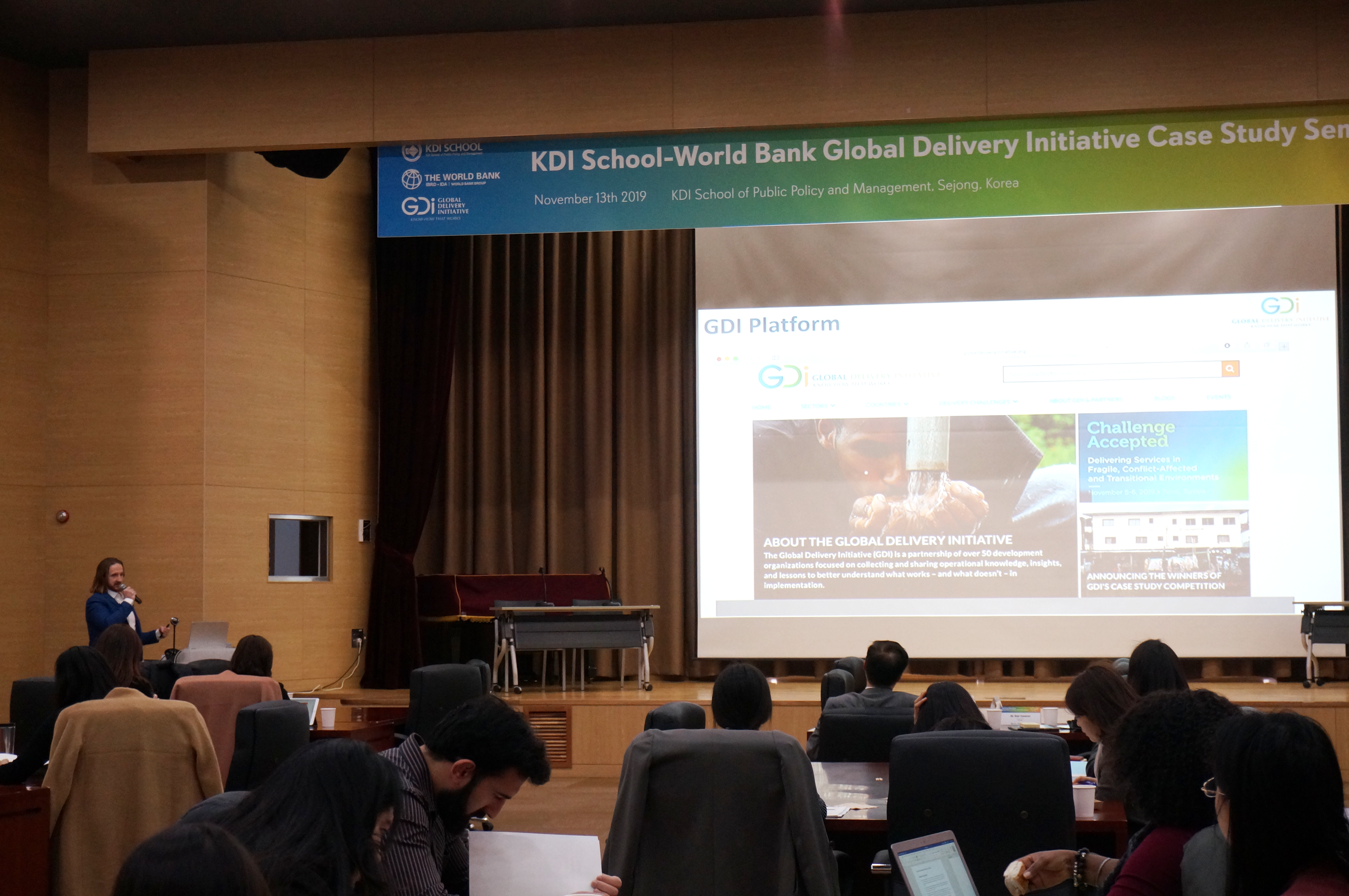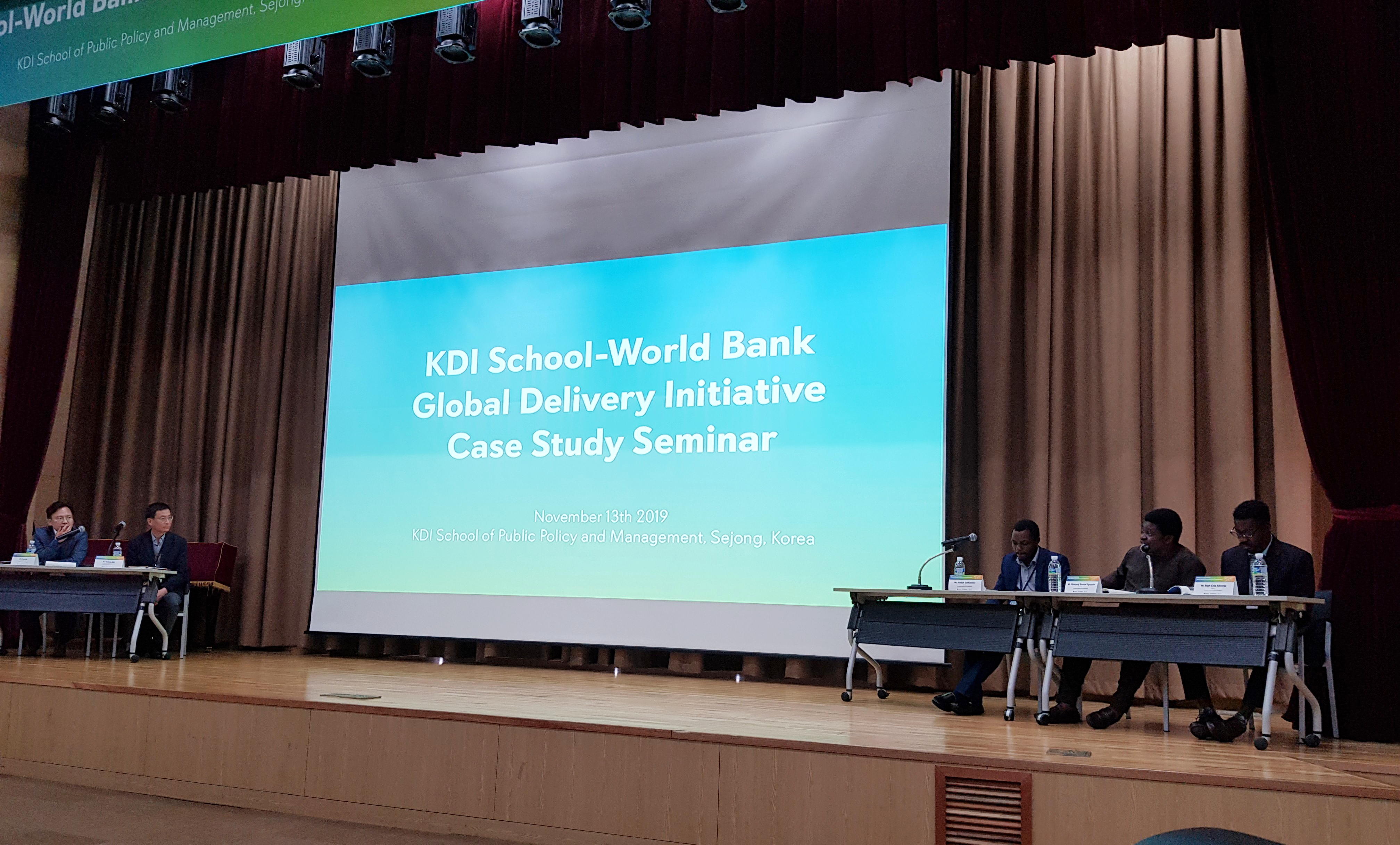
KDI School-World Bank Global Delivery Initiative Case Study Seminar
- Date 2019-12-03 04:17
- CategoryResearch and Education
- Hit2903
On the 13th of November 2019, KDI School, alongside the World Bank’s Global Delivery Initiative (GDI), held a case study seminar for students who are currently in the process of drafting case studies about how a development challenge was overcome in their respective countries; prospective case writers also benefited from the seminar.

GDI is a World Bank initiative to document and share knowledge about implementing reforms or policies in challenging circumstances. In effect, the initiative is about the science of delivery or implementation. Every summer, KDI School, in partnership with the World Bank, offers a course, “Government Reform – Case Writing Practicum,” which helps students to survey typical traps hampering public service delivery, as well as practical reform measures, through case studies. At the end of the course, students develop a field study proposal of an instance of reform in their respective countries, and are sponsored on a field trip to fill informational gaps that they have uncovered during their desk research.
This summer, a total of nine (9) students were sponsored, and during the case study seminar’s first session, Blair Cameron, Consultant for the World Bank’s GDI team, delivered a lecture about the Case methodologies. Cameron gave a walk-through of writing a GDI case study, and the expectations and challenges thereof. Also featured during this seminar were two outstanding examples from case studies of 2018/2019 by two KDI School Alumni: Patricia Anne Pasion (MDP 2018), from the Philippines, and Ahram Han (MDP 2016), from South Korea. Pasion joined the seminar via Skype, to present her case study, titled “It takes a village to raise a child: Malabon City in the Philippines Mobilizes to reduce malnutrition rates, 2014 to 2018”. Han was present to present her case study, “Overcoming the not-in-my-backyard phenomenon in waste management: How Seoul worked with a citizens’ opposition movement and built incineration facilities to dispose of the city’s waste, 1991 to 2013”.

During the second session, later in the afternoon, there were presentations by three (3) current case study writers. Mark Aboagye (MPM 2018) presented his case study, titled “Increasing constructive participation of the urban poor in governance, planning, and budgeting: evidence from Ghana”. Aboagye’s case study documents how Ghana, through the IncluCity project, leveraged existing local government structures to build a foundation for improved governance and service delivery in disadvantaged sections of two cities. Olabanji Ogunjobi (MPP 2018) presented “Using Information Communication Technology (ICT) to expedite citizen monitoring for public sector transparency in Nigeria,” a case study showing how a Non-Governmental Organization – BudgIT – deploys civic technology to empower citizens with budget information, to help them hold the government to account for appropriated funds. Joseph Ssekitoleko (MPM 2018)’s case study, titled “Strengthening budget for sustainable development: Uganda’s transition from output-based budgeting to program performance-based budgeting,” examined Uganda’s drive to improve its budgeting system to achieve the efficiency that will benefit the citizens.

The session ended with a panel discussion, where Professors Cheol Liu and Taejong Kim of KDI School offered critiques and useful suggestions that will help strengthen the narrative of current writers’ case studies. The 2019/20 case studies are expected to be published around March 2020.

Related News
-
Research and Education20 days ago
Republic of Korea Economic Bulletin, April 2024#KDI #Economic #KDISCHOOL #kdischool #Economic Bulletin #Research
-
Research and Education48 days ago
Republic of Korea Economic Bulletin, March 2024#KDI #Economic #KDISCHOOL #kdischool #Economic Bulletin #Research
-
Research and Education80 days ago
Republic of Korea Economic Bulletin, February 2024#KDI #Economic #KDISCHOOL #kdischool #Economic Bulletin #Research
